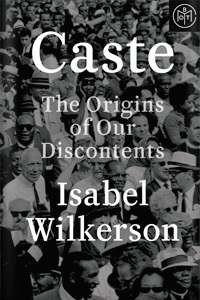Empathetic and Humane Exploration of a Tough Subject
4 stars
This overall did a much better job than the movie of explaining why the central thesis MATTERED, although I think I may have enjoyed the illustrative stories more if I hadn't already seen the movie.
Most importantly, it gave me several mental tools for thinking about race and caste that will be very useful going forward. I think the tallness/shortness metaphor as a way of addressing unconscious bias will stay with me for a long time.
Some parts were less rigorous than they could have been and I think overstated causation, but that's a social science problem, not a this book problem.
This overall did a much better job than the movie of explaining why the central thesis MATTERED, although I think I may have enjoyed the illustrative stories more if I hadn't already seen the movie.
Most importantly, it gave me several mental tools for thinking about race and caste that will be very useful going forward. I think the tallness/shortness metaphor as a way of addressing unconscious bias will stay with me for a long time.
Some parts were less rigorous than they could have been and I think overstated causation, but that's a social science problem, not a this book problem.






